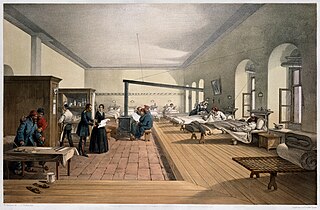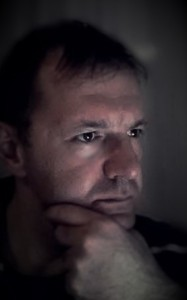
Research is "creative and systematic work undertaken to increase the stock of knowledge". It involves the collection, organization and analysis of evidence to increase understanding of a topic, characterized by a particular attentiveness to controlling sources of bias and error. These activities are characterized by accounting and controlling for biases. A research project may be an expansion on past work in the field. To test the validity of instruments, procedures, or experiments, research may replicate elements of prior projects or the project as a whole.
Accountability, in terms of ethics and governance, is equated with answerability, blameworthiness, liability, and the expectation of account-giving. As in an aspect of governance, it has been central to discussions related to problems in the public sector, nonprofit and private (corporate) and individual contexts. In leadership roles, accountability is the acknowledgment and assumption of responsibility for actions, products, decisions, and policies including the administration, governance, and implementation within the scope of the role or employment position and encompassing the obligation to report, justify and be answerable for resulting consequences.
Bioethics is both a field of study and professional practice, interested in ethical issues related to health, including those emerging from advances in biology, medicine, and technologies. It proposes the discussion about moral discernment in society and it is often related to medical policy and practice, but also to broader questions as environment, well-being and public health. Bioethics is concerned with the ethical questions that arise in the relationships among life sciences, biotechnology, medicine, politics, law, theology and philosophy. It includes the study of values relating to primary care, other branches of medicine, ethical education in science, animal, and environmental ethics, and public health.
Medical ethics is an applied branch of ethics which analyzes the practice of clinical medicine and related scientific research. Medical ethics is based on a set of values that professionals can refer to in the case of any confusion or conflict. These values include the respect for autonomy, non-maleficence, beneficence, and justice. Such tenets may allow doctors, care providers, and families to create a treatment plan and work towards the same common goal. It is important to note that these four values are not ranked in order of importance or relevance and that they all encompass values pertaining to medical ethics. However, a conflict may arise leading to the need for hierarchy in an ethical system, such that some moral elements overrule others with the purpose of applying the best moral judgement to a difficult medical situation. Medical ethics is particularly relevant in decisions regarding involuntary treatment and involuntary commitment.
The Chinese Academy of Social Sciences (CASS) is a Chinese research institute and think tank based in the People's Republic of China.
The International Medical Informatics Association (IMIA) is an independent organization that plays a role in promoting and furthering the application of information science in modern society, particularly in the fields of healthcare, bioscience and medicine. It was established in 1967 as a technical committee of the International Federation for Information Processing (IFIP). It became an independent organization in 1987 and was established under Swiss law in 1989.
Medical humanities is an interdisciplinary field of medicine which includes the humanities, social science and the arts and their application to medical education and practice.
Media ethics is the subdivision dealing with the specific ethical principles and standards of media, including broadcast media, film, theatre, the arts, print media and the internet. The field covers many varied and highly controversial topics, ranging from war journalism to Benetton ad campaigns.
An institutional review board (IRB), also known as an independent ethics committee (IEC), ethical review board (ERB), or research ethics board (REB), is a committee that applies research ethics by reviewing the methods proposed for research to ensure that they are ethical. Such boards are formally designated to approve, monitor, and review biomedical and behavioral research involving humans. They often conduct some form of risk-benefit analysis in an attempt to determine whether or not research should be conducted. The purpose of the IRB is to assure that appropriate steps are taken to protect the rights and welfare of humans participating as subjects in a research study. Along with developed countries, many developing countries have established national, regional or local Institutional Review Boards in order to safeguard ethical conduct of research concerning both national and international norms, regulations or codes.

The Medical College of Wisconsin (MCW) is a private medical school, pharmacy school, and graduate school of sciences headquartered in Milwaukee, Wisconsin. The school was established in 1893 and is the largest research center in eastern Wisconsin. It is associated with Froedtert Hospital as well as Children's Hospital of Wisconsin and houses the Center for Infectious Disease Research There are two additional campuses, one in Green Bay and one in Wausau.
Clinical research is a branch of healthcare science that determines the safety and effectiveness (efficacy) of medications, devices, diagnostic products and treatment regimens intended for human use. These may be used for prevention, treatment, diagnosis or for relieving symptoms of a disease. Clinical research is different from clinical practice. In clinical practice established treatments are used, while in clinical research evidence is collected to establish a treatment.

Health administration, healthcare administration, healthcare management or hospital management is the field relating to leadership, management, and administration of public health systems, health care systems, hospitals, and hospital networks in all the primary, secondary, and tertiary sectors.

The philosophy of healthcare is the study of the ethics, processes, and people which constitute the maintenance of health for human beings. For the most part, however, the philosophy of healthcare is best approached as an indelible component of human social structures. That is, the societal institution of healthcare can be seen as a necessary phenomenon of human civilization whereby an individual continually seeks to improve, mend, and alter the overall nature and quality of their life. This perennial concern is especially prominent in modern political liberalism, wherein health has been understood as the foundational good necessary for public life.

A university is an institution of higher education and research which awards academic degrees in several academic disciplines. Universities typically offer both undergraduate and postgraduate programs. In the United States, the designation is reserved for colleges that have a graduate school.

Vojin B. Rakic is a Serbian philosopher and political scientist. He publishes in English, but also in Serbian. He has a PhD in political science from Rutgers University in the United States. His publications on ethics, bioethics, Kant, and cosmopolitan justice are considered as influential writings in the international academic arena, as can be read in the references to Rakić`s works, the endorsements of his two latest books, as well as in the open letter of support for Rakić that has been signed by dozens of the world`s most reputed (bio)ethicists and philosophers, in which they state their opinion about him.

Klaus M. Leisinger is a social scientist and economist. Klaus M. Leisinger is founder and president of the Global Values Alliance in Basel. Until 2012 he was Managing Director and Chairman of the Board of Trustees of the Novartis Foundation in Basel, Switzerland.

Prison healthcare is the medical specialty in which healthcare providers care for people in prisons and jails. Prison healthcare is a relatively new specialty that developed alongside the adaption of prisons into modern disciplinary institutions. Enclosed prison populations are particularly vulnerable to infectious diseases, including arthritis, asthma, hypertension, cervical cancer, hepatitis, tuberculosis, AIDS, and HIV, and mental health issues, such as Depression, mania, anxiety, and post-traumatic stress disorder. These conditions link prison healthcare to issues of public health, preventive healthcare, and hygiene. Prisoner dependency on provided healthcare raises unique problems in medical ethics.
The MacLean Center for Clinical Medical Ethics, founded in 1981, is a non-profit clinical medical ethics research institute based in the United States. Founded by its director, Mark Siegler, the MacLean Center for Clinical Medical Ethics aims to improve patient care and outcomes by promoting research in clinical medical ethics by educating physicians, nurses, and other health care professionals and by helping University of Chicago Medicine patients, families, and health care providers identify and resolve ethical dilemmas. The center has trained over 410 fellows, including many physicians, attorneys, PhDs and bioethicists.

Françoise Elvina Baylis is a Canadian bioethicist whose work is at the intersection of applied ethics, health policy, and practice. The focus of her research is on issues of women's health and assisted reproductive technologies, but her research and publication record also extend to such topics as research involving humans, gene editing, novel genetic technologies, public health, the role of bioethics consultants, and neuroethics. Baylis' interest in the impact of bioethics on health and public policy as well as her commitment to citizen engagement]and participatory democracy sees her engage with print, radio, television, and other online publications.
Jan Deckers works in bioethics at Newcastle University. His work revolves mainly around three topics: animal ethics, reproductive ethics and embryo research, and genetics.








